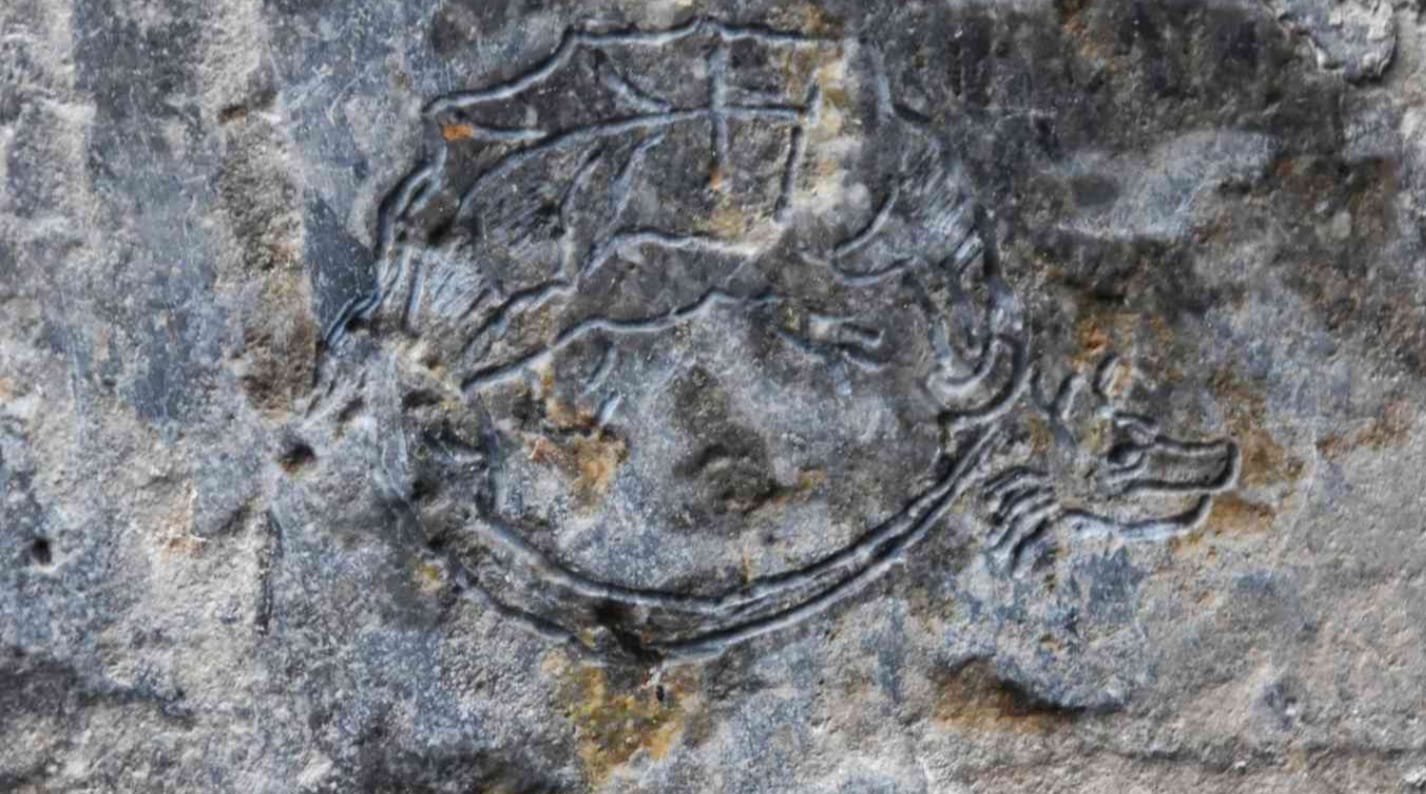The Dragon represents the ‘guardian of the threshold’, guardian of the initiatory spiritual treasure that the neophyte must face and overcome in order to fulfil his initiatory path. There are many conjectures and many hypotheses yet to be verified, but the fact remains that only a very few examples of this symbol can be admired in Europe.
Photo of the overturned Dragon, found at the Baratta Palace in Castrovillari (Cs)




